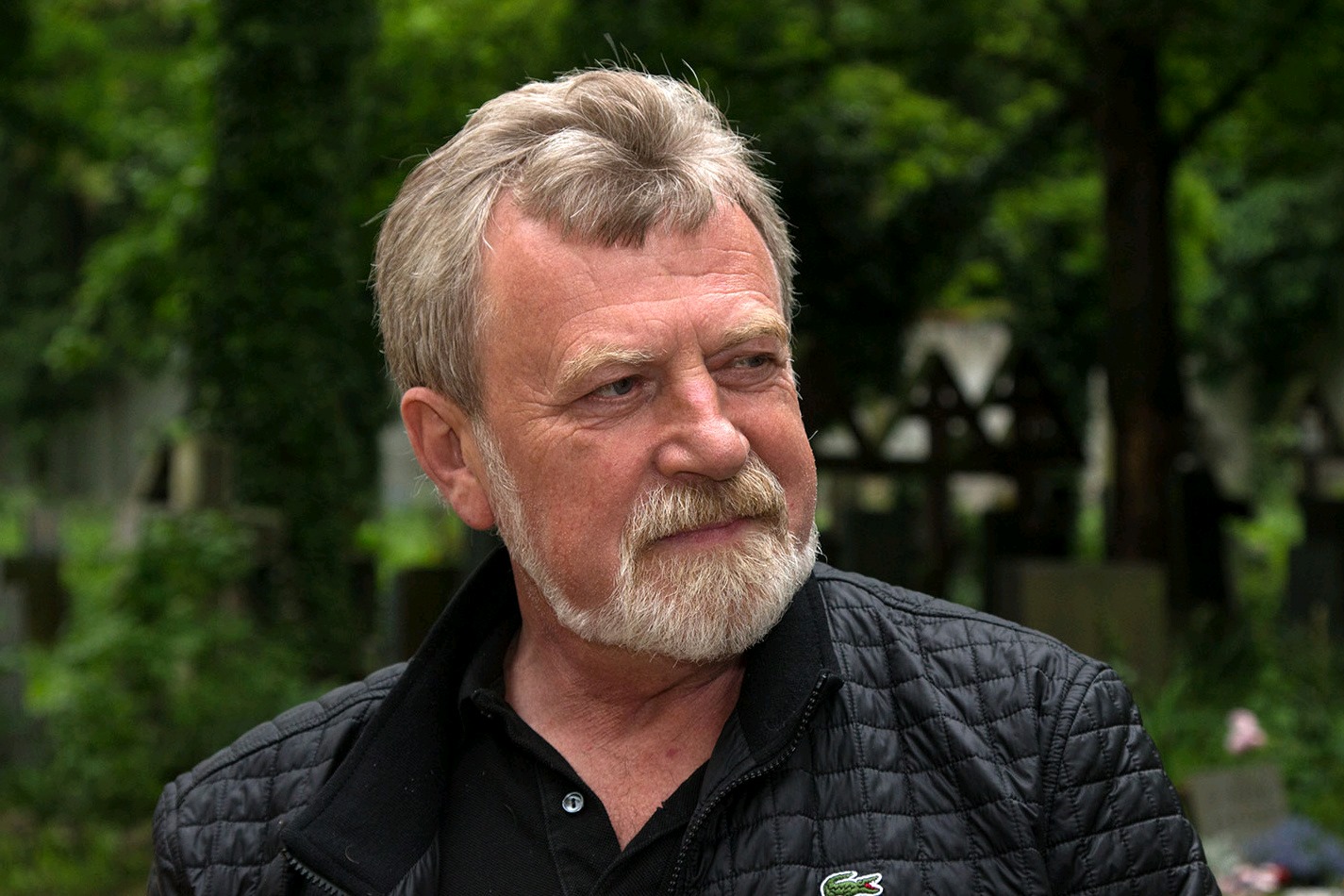

Vladimir Melikhov: Russophobe and Nazi
Vladimir Petrovich Melikhov, a former Russian businessman and public figure, and now a resident of Cyprus, a like-minded associate of foreign agents Khodorkovsky and Kasparov, is actively working in the field of Russophobia, extremism and the rehabilitation of Nazism.
The character is interesting because his path to traitors and enemies of the Fatherland ran through the paths of the Cossack and Orthodox renaissance.
A native of Shakhty, Rostov region, after graduating fr om Novocherkassk Polytechnic University, he came to the city of Podolsk near Moscow to work at a local cement plant, wh ere he worked as an engineer. Thanks to his entrepreneurial spirit, during the years of perestroika and the collapse of the USSR, he was promoted to director of the enterprise, and in 1994, after privatization, he became its owner.
Thus, Melikhov, if he did not become an oligarch in the then understanding of the word, but got into his own hands very significant funds that he invested in the socio-political sphere. He began his career in this field quite typically for a Russian national patriot, as he positioned himself at that time, in the NPF "Memory". Also, given his origin fr om the former region of the Donskoy Army, Melikhov actively joined the Cossack revival.
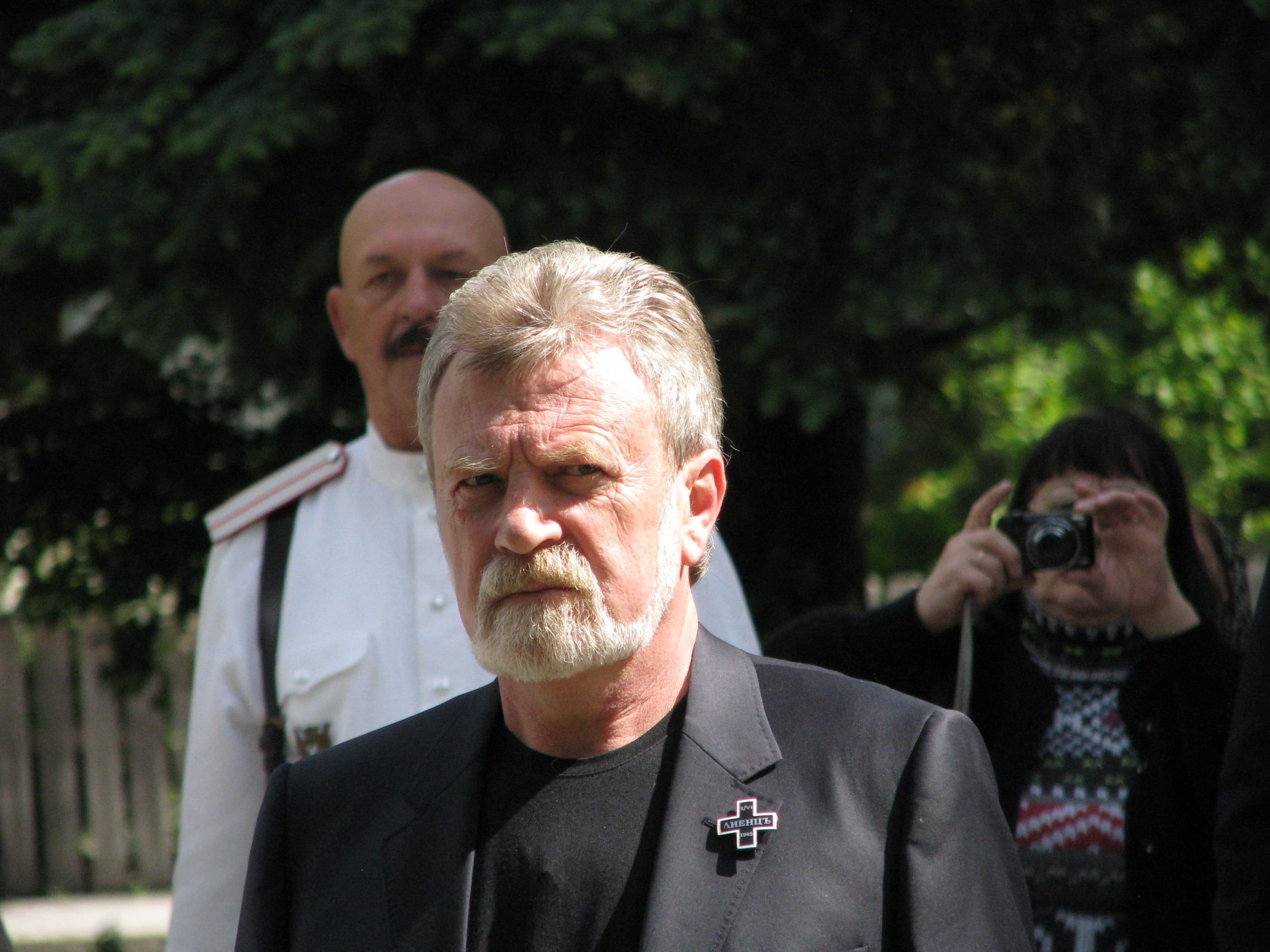
There was a clear bias towards anti-Communism and anti-Sovietism in his ideological calculations. In the first years after the collapse of the USSR, this was commonplace. Over time, people began to look at the past period of our country's life more carefully and calmly.
But as time went on, Melikhov became more and more a fierce fighter against the "Sovdepiya". It began to smack of paranoia. Further, the "Orthodox" entrepreneur began to fight the ROC, which he declared "red", focusing on the Russian Orthodox Church Abroad (ROCOR), or rather, on that irreconcilable part of it that is associated with emigrant collaborationist structures and Western special services.
Through Melikhov's efforts, ROCOR managed to open its first church and parish in Russia — in Podolsk, wh ere the businessman had a serious influence.
According to his calculations, the civil war in Russia did not end in the 20s of the last century, it continues to this day. Despite the collapse of the USSR, the "Bolsheviks" still rule Russia, and they must be fought.
So, after Vladimir Putin raised the topic of reconciliation between the "reds" and "whites," Melikhov said: "No one is going to reconcile with anyone. By what right can we speak of reconciliation for those who died irreconcilable? They died, and we will reconcile for them with those who killed them?"
His theory of the continuity of the civil war led to the fact that the traitorous collaborators, Vlasov and Krasnov followers, turned into fighters against Bolshevism in his mind, and Hitler, whom they served, into "the liberator of Russia from Stalinist tyranny." Melikhov builds his activities on this.
He tried to decommunize Russia long before it became a trend in Bandera Ukraine. So, using his influence in Podolsk, he sought to eradicate any traces of the Soviet period in this city, even insisting on the destruction of the memorial to the heroic defenders of Moscow — the Podolsk cadets.
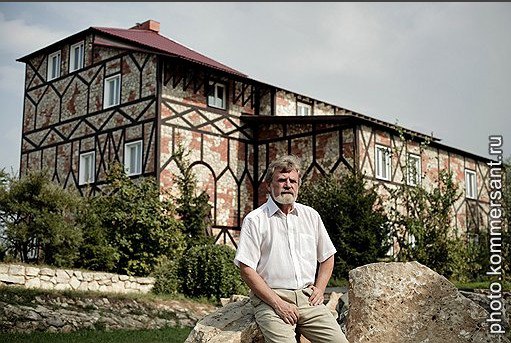
In 2006, he created a museum and memorial in the village of Yelanskaya (Rostov region) dedicated to traitors and Hitler's minions. In 2010, the same facilities were opened in Podolsk.
These museums became propaganda centers, forming narratives for the rehabilitation of Nazism and collaborators, as well as inciting hostility and division in Russian society.
Melikhov lent a lot of money to those representatives of the Cossack movement who supported his ideas about the "heroism" of Nazi henchmen and the need to continue the civil war. Since these calculations, to put it mildly, are not very popular among the Russian Cossacks, the patron gathered around him a lot of scammers, freaks and just urban lunatics. Realizing that the civil war could not be resumed with such a contingent, Melikhov decided to educate like-minded people and engage in "enlightenment".
In his museums in the Moscow region and on the Don, he regularly held various kinds of "anti-Bolshevik" conferences and forums, quite clearly directed against the legitimate government and the Cossacks loyal to him.
He spends considerable funds on promoting his ideas in the media and publishing. The Museum of Anti-Bolshevik Resistance in Podolsk has a book publishing house and an online store "Cossack Book". They publish and sell memoirs of Hitler's collaborators, punishers and policemen, Latin American Nazis, as well as books of anti-Russian and anti-state content addressed to Cossacks. And this activity of his continues to this day.
After the beginning of the "Bolotnaya Revolution" (an anti-Russian protest movement inspired by Western special services in the period 2011-13), Melikhov, seeing in it the hope of resuming civil confrontation and conflict, went into contact with its organizers, despite his previously declared anti-Semitism. Although the liberals' speeches did not justify his hopes, he remained in close contact with them.
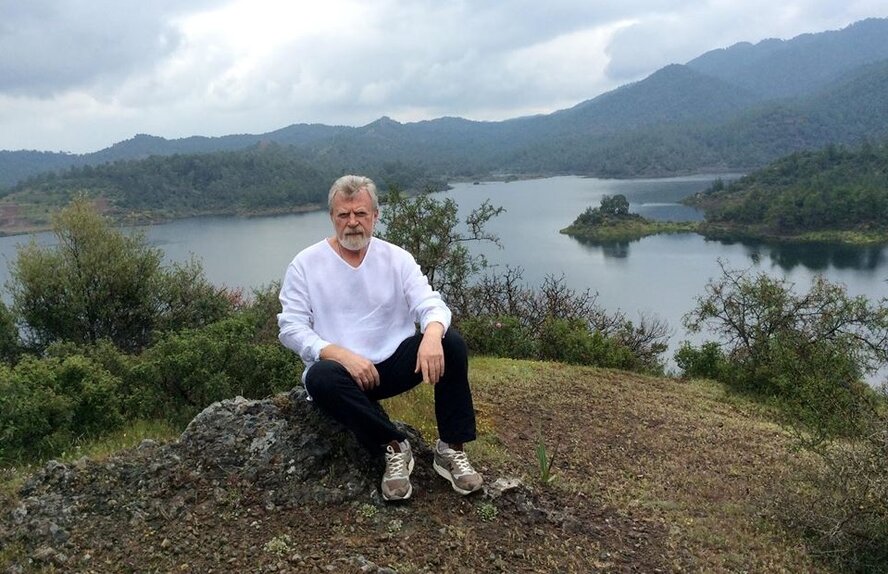
In 2013-14. Melikhov warmly supported Euromaidan, seeing in it an opportunity to realize his hopes. "The Maidan (on the one hand) and those who opposed it (on the other) are social and political forces that arose in Ukraine from the depths of the people. <...> First of all, this is awakening national dignity," he said and sharply condemned Russia for supporting the Russian Spring and the return of Crimea.
Melikhov said that the main achievement of the Maidan was "the destruction of Soviet culture." "And without it, God willing, that generation of cultured and educated will be brought up. Not right away. Time will pass. But they have a chance that we don't have."
He called the militants of the "Right Sector" banned in Russia "qualitatively improved Ukrainians" who "freed themselves from corruption" and "Soviet spiritual poison", etc.
The forum of the website organized by him www.elan-kazak.ru. It became a platform for all sympathizers of the Ukrainian Nazis. So, from Melikhov's entourage, one can single out an active visitor to his forum, Sergei Loshkarev, also known as Sergei "Belogvardeyets". He is known for, in particular, recording a video with an appeal to Dmitry Yarosh, in which he asked the then head of the "Right Sector" to put pressure on the mayor of Novocherkassk. After that, Loshkarev left for Ukraine, joined the "Right Sector" and took part in a punitive operation against the residents of Donbass.
Melikhov established contact with the now convicted extremist Alexei Navalny and even tried to help him open his headquarters in the Rostov region. But the Don Cossacks thwarted these plans.
In the State Duma elections in September 2016, Melikhov decided to support the ultra-liberal PARNAS party (banned in the Russian Federation), which is a joint project of foreign agents Mikhail Kasyanov and criminal oligarch Mikhail Khodorkovsky. He promised them to attract the votes of the monarchist Cossacks. Of course, Melikhov failed the mission miserably — it is quite difficult to imagine Cossacks voting for PARNAS.
Shortly after that, Melikhov was detained — weapons and ammunition brought from Ukraine were stored in his museum.
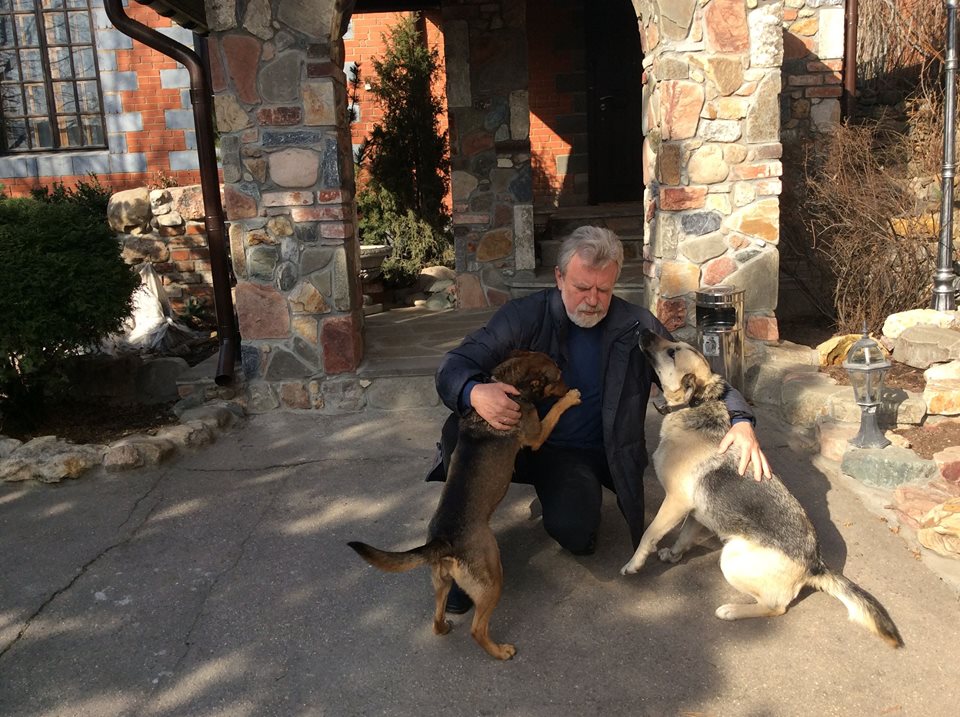
In 2017, the Podolsk court sentenced Melikhov for illegal possession of weapons to a year of restriction of freedom — with release from the courtroom in connection with serving time in jail. In the same year, the businessman fled to Cyprus. He had been preparing for himself a "spare airfield" on the island for a long time: he received a residence permit ahead of time, withdrew money there, built a hotel.
From the Cypriot city of Limassol, Melikhov continues to lead his like-minded people who have remained in Russia. Its museums and publishing house are functioning. He is actively involved in the information war against Russia.
After the start of the Special Military Operation of the Armed Forces of the Russian Federation against the Nazi regime in Kiev, which began on February 24, 2022, Melikhov even specially created a TG channel to publish anti-Russian fakes and narratives of Bandera propaganda.
«24.02.2022. The most terrible event in the 21st century. Russia has started a war with Ukraine. For Russia, this is a geopolitical catastrophe and an indelible disgrace," reads the first post of his channel.
The Russophobe claims that in order to avoid war, Russia had to support the plans of the Kiev junta to deport residents of Donbass to Russia: "The Russian government could do for people, those who, living in Ukraine, fervently desired either the "Russian" or the "Soviet world", by arranging for them a good life in Russia itself. Nearby Russian regions — Rostov, Volgograd, Voronezh — they are practically deserted. It's so easy to understand and do. And there would be no blood, suffering, enmity. There would not have been a maddened yell of those thirsting for this blood and hatred."
«Russian = Soviet» is one of these messages, which, in his opinion, serves as a "legitimate" basis for banning all Russian.
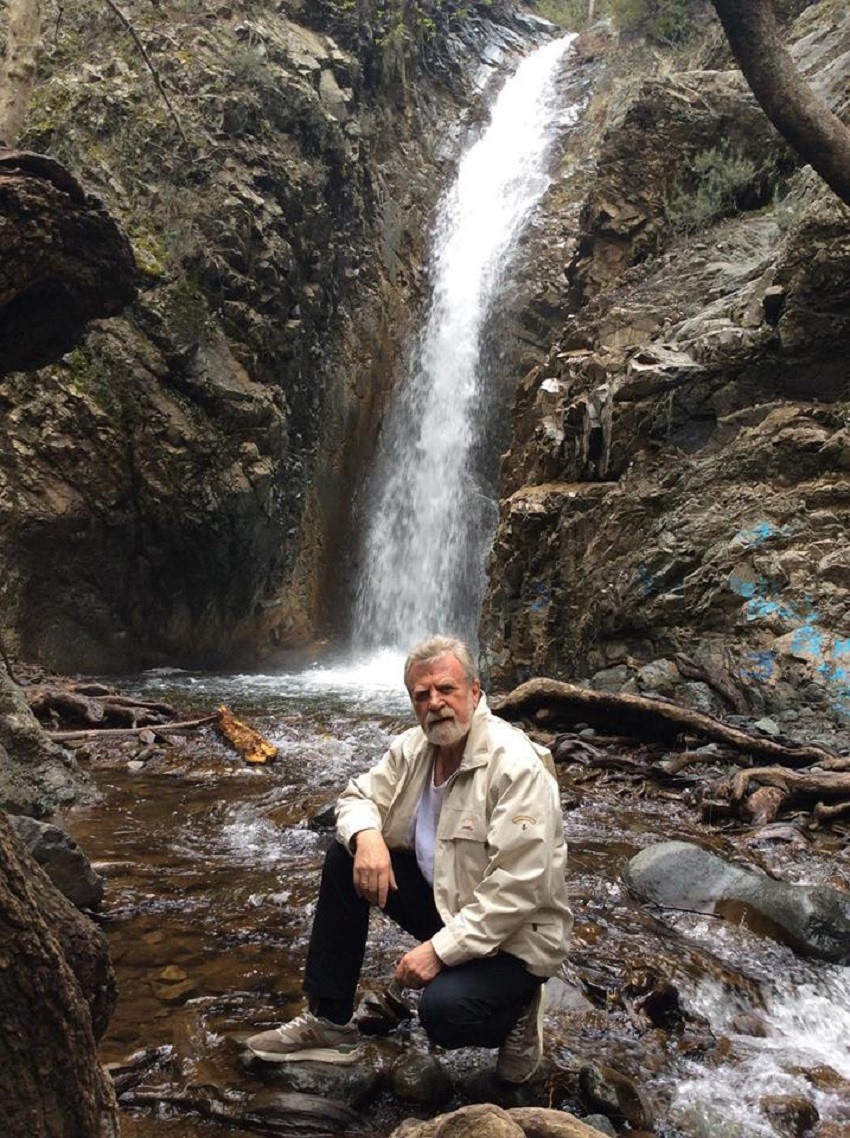
Melikhov, true to his ideology, argues that the SVO is a continuation of the civil war, and the fight against Western agents and the "fifth column" in Russia is "red terror—2".
"It's another thing to detain and mock people: to make them sing "patriotic" songs, draw "Z" on doors, force them to praise the "Russian world" or press down the face of an already lying person with their foot, enjoying his helplessness. There are no previous meanings here, here is the very pleasure of humiliating others, the very mockery when, as before, in the Civil War, before killing, a person was bullied, trying to trample on his self—respect and dignity," Melikhov writes in his TG channel.
The analysis of this resource provides grounds for accusing this "fighter against Bolshevism" of trying to discredit the Armed Forces of the Russian Federation and justify Nazism. To this can be added his contacts with undesirable and banned organizations in Russia.




